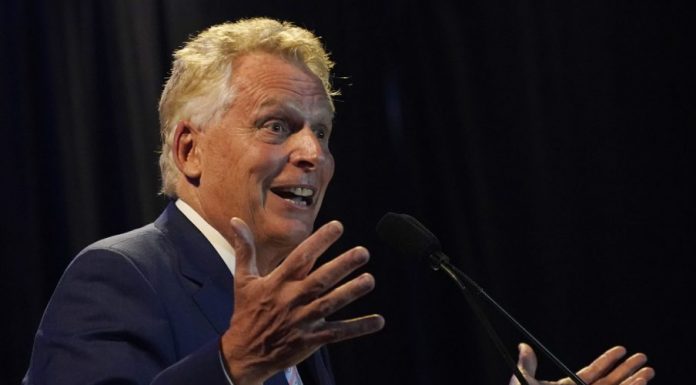Despite numerous ongoing controversies concerning education policy in Virginia, former Gov. Terry McAuliffe, the current Democratic nominee for governor, remains committed to these same divisive programs—even as polling in the gubernatorial race shows a dead heat.
In recent weeks, Republican challenger Glenn Younkin has largely reversed early polling that indicated a significant lead for McAuliffe heading into the fall.
A faltering economy is one reason for his surge, but education in particular has been decisive.
Polling over the last month suggests that Republicans, independents, and even some Democrats are uncomfortable with several educational policies across Virginia public schools.
If the inclusion of Critical Race Theory topics in the curriculum presented a polling problem for McAuliffe in the early days of October, then there are signs that the equal access transgender ordinances that are en vogue today represent a similar threat to his reelection prospects.
Following news of an alleged rape by a “gender fluid” student in Loudoun County, parents across the state as well as the Youngkin campaign are pointing the proverbial finger at McAuliffe as well as the current governor, Ralph Northam, for making these tragedies possible.
Over the last five years, progressives in Virginia—especially on school boards—have advanced unpopular and partisan rules for schools on transgenderism and gender identity accommodations that boil down to allowing students to do as they please—even if other students and parents dissent.
This April, Virginia’s Department of Education shared the guidelines that Northam asked it to draft, and they go further in the same direction.
McAuliffe has made clear that he wants these administrators to make decisions, and that the parents should not have a role in their children’s education.
With massive upticks in gender dysphoria in less than a decade, parents are understandably disturbed by the decisions of politicians to affirm and advance these trends.
However, with voting already underway in the state’s Nov. 2 election, Virginians will soon have the opportunity to make their displeasure or assent with these policies known.

